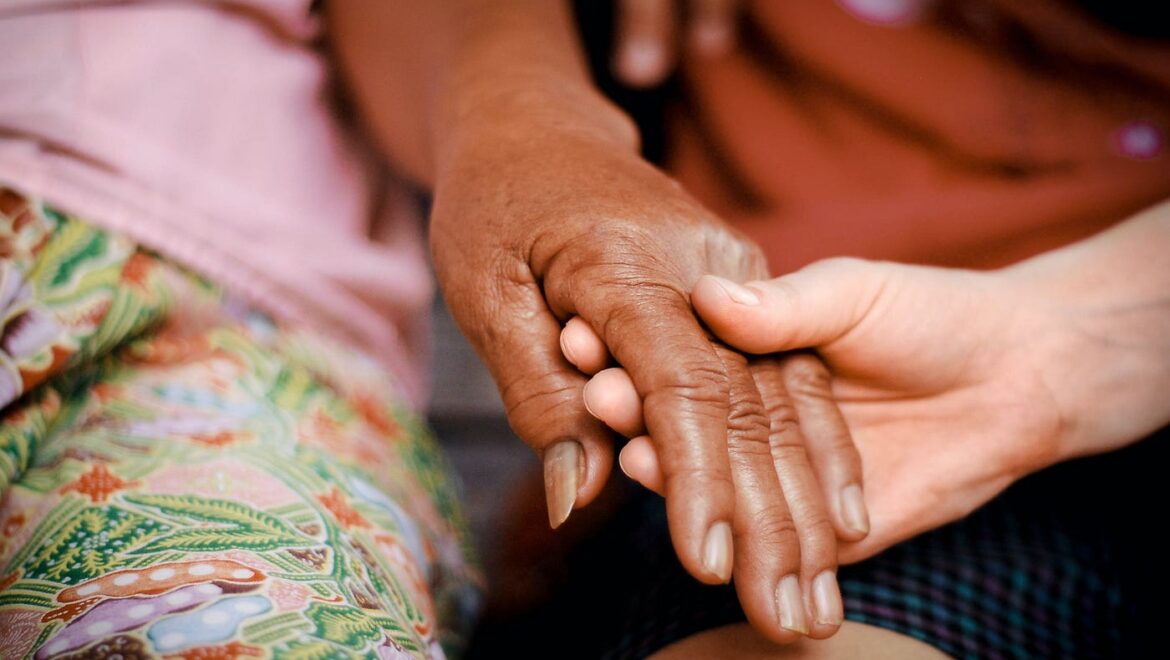Many of you love Ram Dass. Anybody who’s read my stuff knows that I do. He was a gift to humanity.
What many of you probably don’t know is that he came close to not becoming the great being he became. This article tells that story.
First, some background. Ram Dass grew up as Richard Alpert in a well-to-do Boston family. His father was a successful railroad executive who, among other accomplishments, played a central role in creating Brandeis University.
A privileged upbringing
Alpert attended Tufts University then got his master’s in psychology at Wesleyan and his PhD at Stanford. This elite track didn’t stop with his education as he went on to become a professor at Stanford and then Harvard.
It was at Harvard that Alpert joined forces with his fellow professor Timothy Leary to research the potential therapeutic effects of psychedelic drugs like psilocybin and LSD. In 1963 Harvard fired Alpert for giving psilocybin to an undergraduate and let Leary go for blowing off his teaching responsibilities.
Leary and Alpert didn’t miss a beat, picking up and moving their psychedelics research endeavors to the Hitchcock Estate in Millbrook, New York, a massive mansion provided them by Mellon heiress Peggy Hitchcock. They set up a commune of sorts that revolved around studying the effects of psychedelics.
Can you imagine that? Sitting around in an enormous mansion getting high every day? That’s got movie, or HBO series, written all over it.
High highs followed by low lows
What were Alpert’s personal experiences like with these drugs? It came down to this: He loved the high that he achieved, but he always…always came back down to earth.
The high these psychedelics brought him manifested largely as a loss of ego which left nothing but a sense of pure consciousness. This was profoundly helpful. But…
Alpert could never sustain the high. He couldn’t figure out a way to extend that ego-less state into his regular, non-high existence.
Looking for sustained consciousness
To say that this troubled him would be a vast understatement. It threw him into an existential crisis. He had to figure out a way to maintain the deep levels of consciousness that psychedelics provided him.
After four years of this, fate intervened. A guy Alpert had guided through some psychedelic sessions had made a bundle of money after selling his company to Xerox. He retired at age 35 and became a Buddhist.
In 1967 he asked Alpert if he wanted to join him on a journey to India in search of higher beings. Alpert, highly dissatisfied with the temporary consciousness offered by psychedelics, accepted the invitation, thinking maybe these holy people could guide him to a more permanent state. And off they went.
A chance meeting in Nepal
After three months traveling around in a souped up Land Rover, smoking hash, meeting the Dalai Lama and having a relatively comfortable, westerner’s experience of the East, the two found themselves in Katmandu, Nepal. It was their final stop before heading to Japan and, finally, home.
Alpert found himself deeply depressed. That deeper, more permanent state of consciousness he’d searched for was nowhere to be found.
One day in Katmandu they went to a hippie hangout called the Blue Tibetan, with Alpert in total despair. Then in walked an extraordinarily tall (6’ 7”), young (23), barefoot blonde American kid named Bhagwan Dass who’d been traveling around India the past five years.
Entranced by a 23 year old
After chatting with him for a while, it hit Alpert like a ton of bricks that this kid “knew.” He had “it.” He didn’t know exactly what that was or what it meant, but he knew he had to get to know this guy.
So for the next five days they spirited Bhagwan Dass to their swank suite in the Sewalti Hotel and pelted him with questions about all matters spiritual. At the end of it, Alpert was gobsmacked. This Bhagwan Dass guy was the real deal.
Which brings us to Alpert’s fateful decision. A decision that altered the course of his life forever.
The big decision: comfort or discomfort
It was time to leave for Japan for a final stop before heading home. Alpert had to decide: Do I continue my first-class journey or do I head off with this 23 year-old California kid who happens to be the wisest person I’ve ever met? The kid had no money and no possessions.
Alpert was so distraught at not realizing any kind of spiritual growth thus far on the trip that he said, “Screw it,” threw caution to the wind and headed off with Bhagwan Dass.
The succeeding months found him walking around India barefoot, developing painful blisters on his feet, sleeping on the ground or on wood tables and contracting dysentery. All the while, Bhagwan Dass taught him the basics of yoga.
Things like not thinking about the future or the past, but simply being here now. Letting emotions come and go, like waves in the ocean. Meditating.
A word with his mom under a starry sky
Three months into his journey with Bhagwan Dass, something magical happened. Alpert awoke in the middle of the night to go outside and pee.
While doing so, he looked up into the bright, starry sky and felt the presence of his mother who had died the previous year of spleen failure. In those moments he felt a powerful rush of love for her. Not thinking much of it, he went back to bed.
The next day Bhagwan Dass told him they had to drive to the mountains to see his guru for help getting his visa renewed. A hundred miles into their drive they came to a tiny temple by the side of the road in the foothills of the Himalayas.
Bhagwan Dass exited the car and started running up a hill. Alpert, surprised and perplexed, followed him.
Dick Alpert meets his guru
Eventually, they reached a field where a man, around 65 years old, was lying down, with a blanket around him, surrounded by eight or nine people. Bhagwan Dass burst into tears as he finally arrived at the man, Neem Karoli Baba, and bowed and touched his feet.
Alpert said he was thinking, “I’m not doing that. I don’t have to. I don’t even know who this guy is.”
After a brief introduction and chat, the guru told his people to take the two Americans away and feed them. Later that day Neem Karoli Baba summoned Alpert to come see him.
Ram Dass recounted their conversation in his classic book Be Here Now:
Neem Karoli Baba: “You were out under the stars last night.”
Alpert: “Um-hum.”
Neem Karoli Baba: “You were thinking about your mother.”
Alpert: “Yes.”
Neem Karoli Baba: “She died last year.”
Alpert: “Um-hum.”
Neem Karoli Baba: “She got very big in the stomach before she died…Spleen. She died of spleen.”
Alpert swears that he didn’t tell anybody, including Bhagwan Dass, about his experience the previous night under the stars. Not one person.
Alpert said that when Neem Karoli Baba had finished talking he looked at him in a certain way. He described it as being in the presence of pure love.
Alpert finds his home
After a few moments of this, Alpert burst into tears. Not because of the poignancy of dealing with his mother’s death in such a profound, mysterious way. Rather, he said he cried so hard because:
“It felt like I was home. Like the journey was over…”
And in a sense, his journey was over. From that moment on, he dedicated his life to Neem Karoli Baba who, shortly thereafter, gave Richard Alpert his new name: Ram Dass.
The takeaway
None of this would have happened had Richard Alpert decided to take the easy path and head to Japan. He knew that following this strange 23-year-old kid was going to be uncomfortable and and completely unpredictable.
But he chose, as Robert Frost immortalized in his iconic poem, to take the road less traveled. And that made all the difference, to Ram Dass and, even more important, to the millions of people like me and many of you whose lives he has touched so deeply.
What’s the point of all this? Don’t be afraid to get out of your comfort zone. Doing so may take you to heights you never could have imagined.










